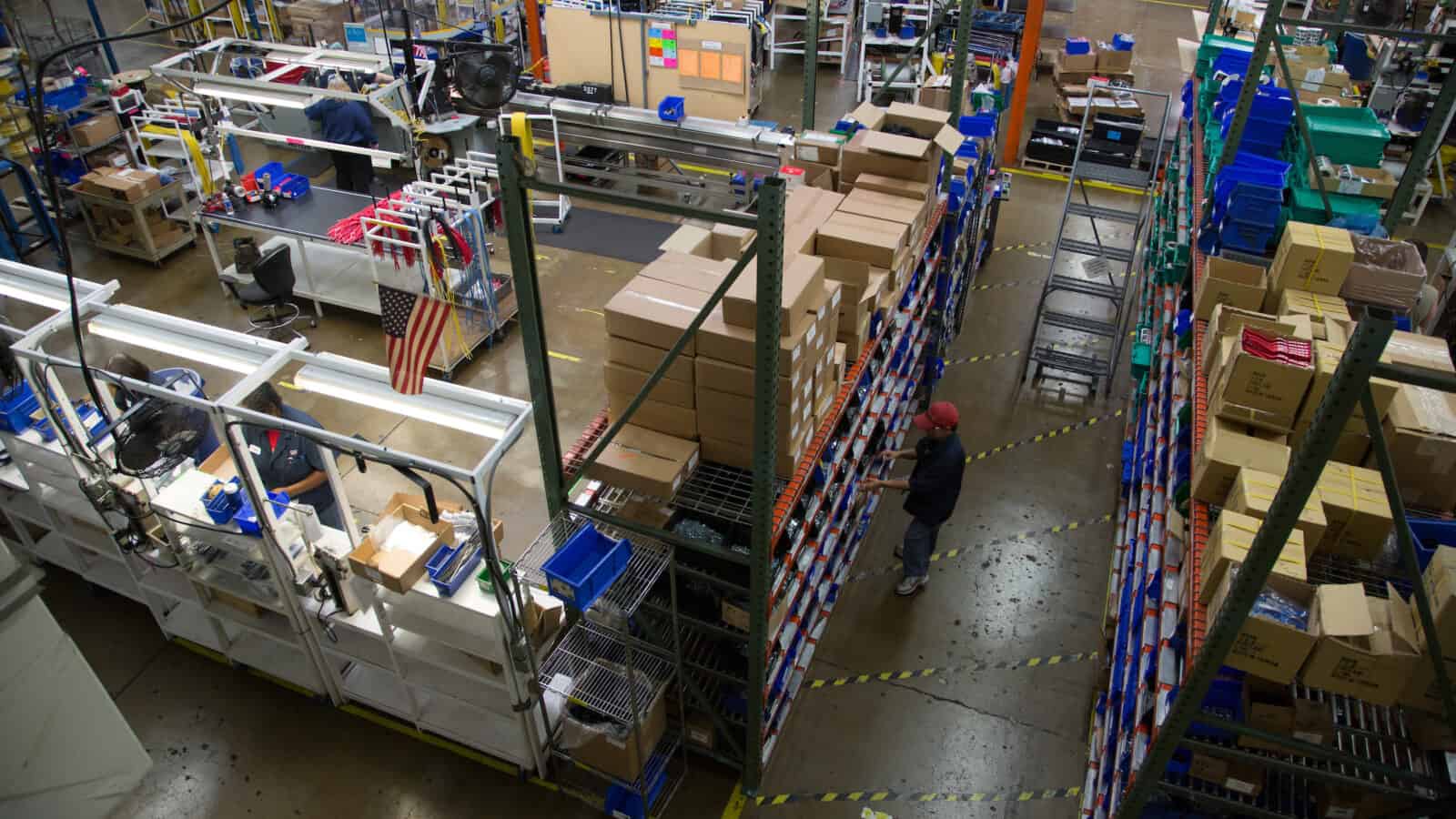Manufacturing Offers Many Debt-Free Careers
Get the Latest News
Get Involved
The manufacturing industry has had more than 2.6 million job openings nationally in 2022 already—a workforce shortage that shows little signs of slowing. Meanwhile, half of all those available jobs don’t require a four-year college degree or the debt that goes with it.
This week, President Biden announced new measures providing student debt relief to many eligible Americans. Yet the manufacturing industry helps young people avoid this problem in the first place, while also offering them salaries far above the national average.
Manufacturing Institute President Carolyn Lee weighed in on the advantages available to young people looking to make a strong entry into the workforce, instead of suffering under debt that makes it more difficult to start a family, purchase a first home and achieve other major life milestones. Here’s what she had to say.
How it works: Manufacturers often offer short-term certifications or other training programs that allow people to jump into high-paying careers quickly and without debt, Lee explains.
- “There are multiple pathways to career opportunities in manufacturing through skills training, ranging from short-term programs to more involved skills development and apprenticeship programs,” says Lee.
- For example, the Federation for Advanced Manufacturing Education (FAME) program (founded by Toyota and operated by the MI) offers current and aspiring manufacturing workers both on-the-job training and classroom education. The program leads to an associate degree and an Advanced Manufacturing Technician (AMT) certificate.
- Manufacturers work with FAME’s local chapters in part because they allow companies to use a global best system to train the skilled workforce they need to compete.
The numbers: The data show that manufacturing is a good choice for those inclined to avoid debt, Lee points out.
- As noted above, there have been more than 2.6 million manufacturing job openings so far in 2022, but just 47% of those job openings (about 1.2 million) require a bachelor’s degree or greater.
- Meanwhile, manufacturing workers in 2020 earned $92,832 on average (compared to an average of $77,181 for workers in all private nonfarm industries).
What can policymakers do? To ensure that manufacturing training programs continue to expand and succeed, policymakers should make certain changes, says Lee.
- For example, Pell Grants should be usable for high-quality training programs as short as eight weeks—often all that is needed to train a technician.
- Policymakers should also ensure that our education system focuses on skills attainment for career success, and that teachers and other influencers are aware of opportunities offered by pathways other than four-year degree programs.
#CreatorsWanted: The NAM and the MI have taken this message to communities across the country through the Creators Wanted campaign’s tour and mobile experience. Tens of thousands of students, parents, educators and local leaders have attended the tour stops, where they learned about the promise of manufacturing careers and were challenged to think like manufacturers in the interactive mobile experience.
- As Lee told students at the Creators Wanted stop in Freeport, Texas, “Without a steady stream of talented, bright young people … we can’t keep up the good work of continuously making our products. This is not a get-one-job-and-stay-there-for-40-years [situation]. This is a choose-your-own-adventure [career path] with continuing skills and challenges and opportunities and learning along the way.”
The last word: “We understand how oppressive student debt can be, especially when starting out in life,” said Lee. “More people should be able to get a rewarding and well-paying job that doesn’t require massive debt that takes a lifetime to pay off. This is one of the reasons we work so hard to make sure young people know about the variety of options available to them in manufacturing careers; it’s not just for the industry’s benefit, but for theirs as well.”
If you’d like to hear more about careers in manufacturing, come to one of the many MFG Day events happening this October.



